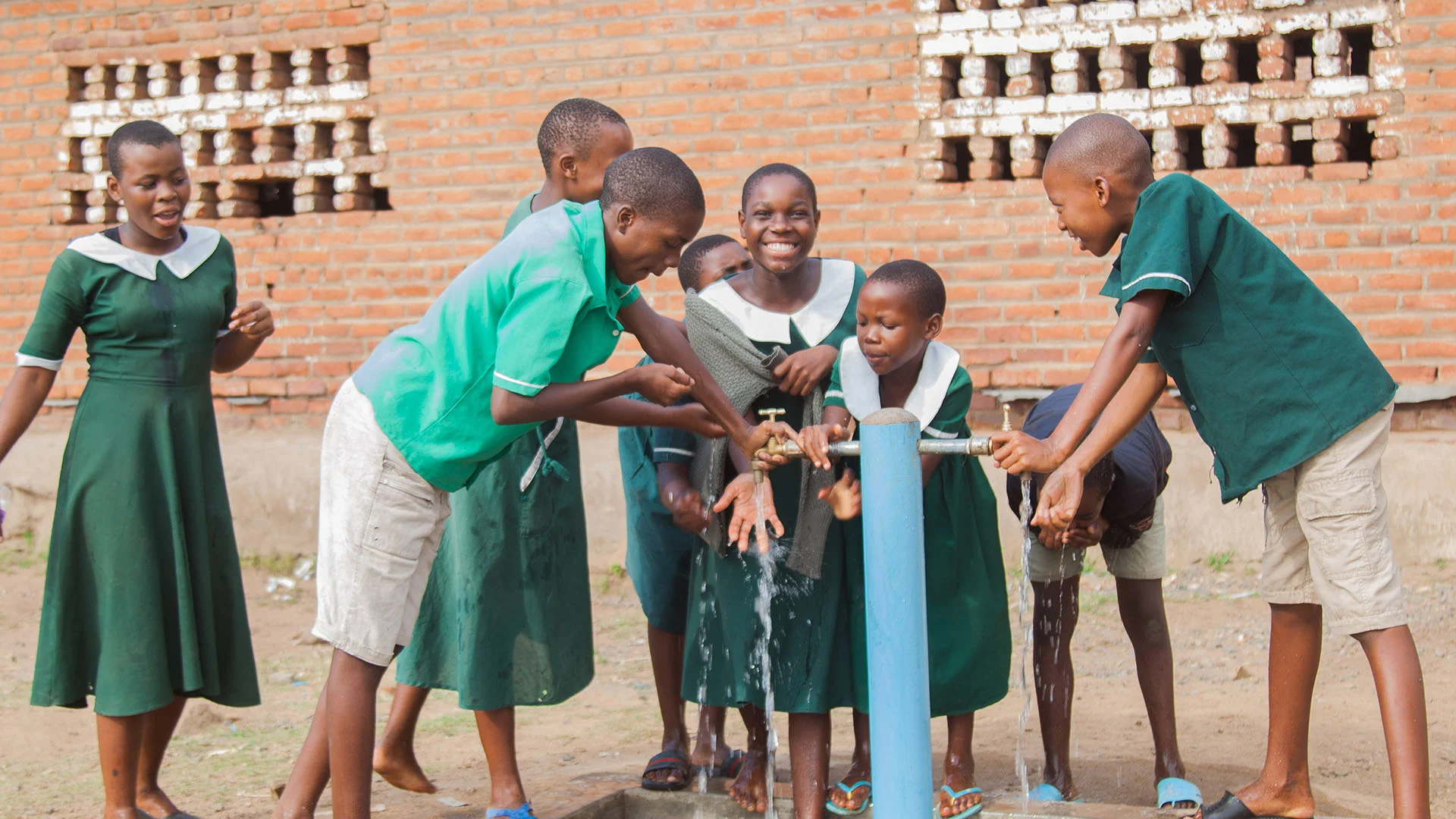Dirty drinking water is part of everyday life for many children in Malawi. Because it makes them ill, they often cannot go to school. UNICEF is installing solar pumps to reach groundwater that is deeper down and therefore clean.
The situation
The majority of the population in Malawi depends on groundwater that is obtained from a shallow depth by diesel-driven hand pumps. These hand pumps can only be installed up to a maximum depth of 45 meters. Due to the destruction of the environment and climate change, however, the groundwater level in some parts of Malawi has fallen well below the required 45 meters.
Lack of access to clean drinking water has far-reaching consequences for children in Malawi. Many children suffer from diarrhea or other infections because they are forced to drink contaminated water. In addition, they are often left with no time for school as they have to go long distances to fetch water from the nearest source.
How UNICEF helps
UNICEF is improving access to clean water with solar pumps that reach deeper groundwater and have a higher capacity. These pumps are connected to a distribution system and thereby simplify the population’s access to clean water. In addition, the life cycle analysis of solar-powered units is significantly better than that of diesel-powered systems. The solar-powered water pumps reach a depth of 250 meters and can therefore ensure a long-term supply from groundwater. The solar pumps’ robust structure makes the units more resistant to flooding, which supports the entire community in emergency situations. During the disastrous flooding caused by Cyclone Idai in early 2019, the water system proved its value as part of the emergency aid in schools, health care facilities and communities used for emergency accommodation. For example, UNICEF was able to reach a total of 60,000 people who became refugees during the cyclone and subsequent floods.
UNICEF Switzerland and Liechtenstein has supported the program in four schools and the neighboring communities since December 2019. A total of 12,000 people should be able to benefit from better access to clean water as a result. In collaboration with the District Water Office, a water management committee, every time UNICEF builds a water system, it also mobilizes and trains people in the communities accordingly. The training covers such topics as water resource management and finance management. The knowledge that these people receive contributes to good management and ensures the sustainability of the water system. In addition, awareness is raised and information provided in the community relating to important issues of hygiene and hygiene practices.
Current status
Despite the lockdown imposed at times as a result of the outbreak of the COVID-19 pandemic in Malawi, it has proved possible to continue the project supported by UNICEF Switzerland and Liechtenstein with some modifications. In the past project phase, a total of 7,296 school students were reached. In addition, 4,500 members of the community from the nearby villages benefited from the three solar-powered water systems that have been installed. To ensure the sustainability of the water system, UNICEF is now in the process of giving training to the local water management committees about the water systems.
The program was also slightly modified and extended because of COVID-19. A hand-washing station was added to the solar-powered water pumps in every school. Important hygiene measures can therefore be complied with in the schools.
You can help!
With your donation, you will help to enable children in Malawi and their families gain access to clean water. This will make everyday family life easier, they will be able to get to water faster and more easily, girls and boys will not fall ill so readily and will be able to go to school. Our warmest thanks for your support.
